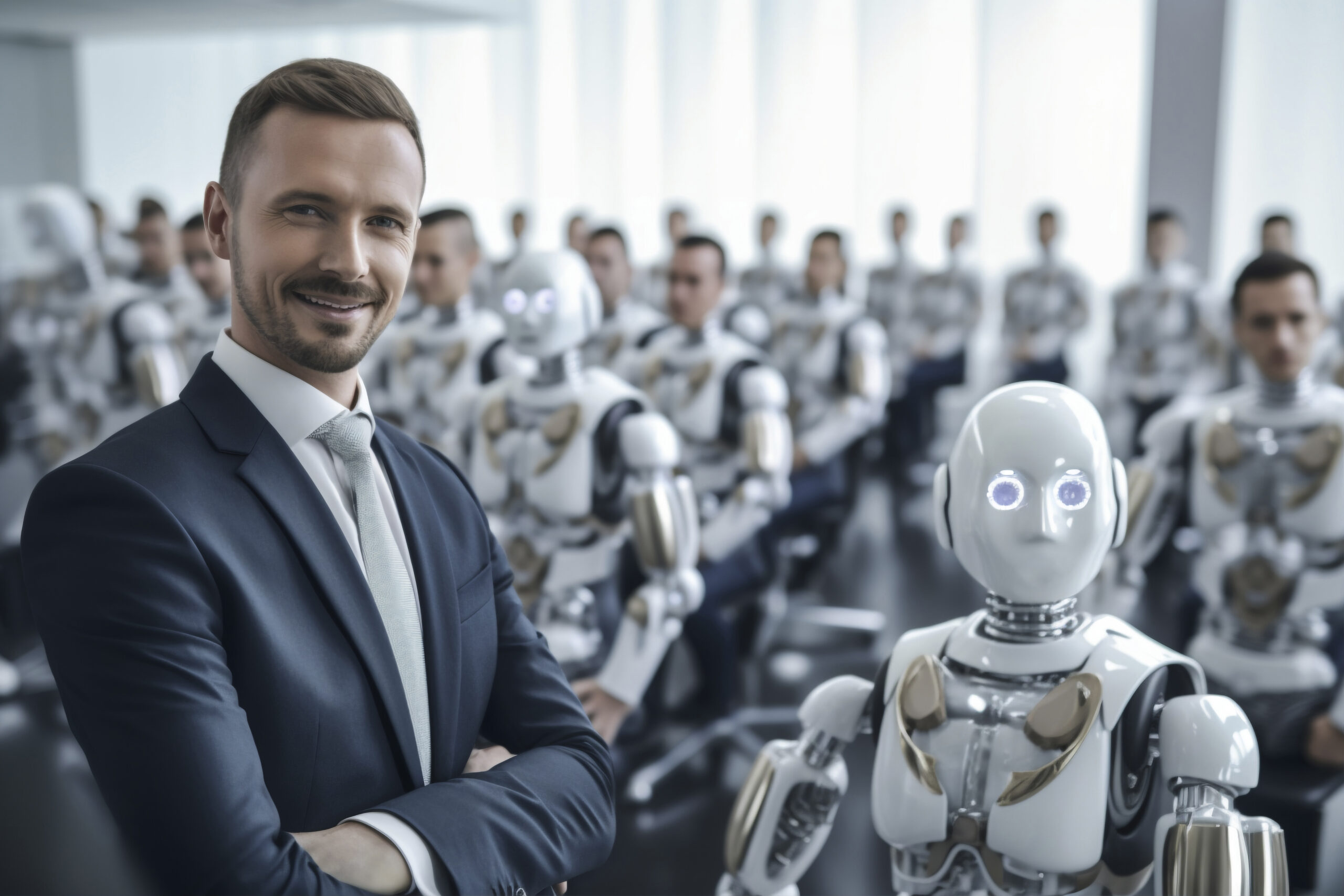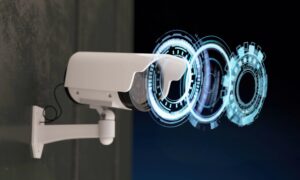In 2025, artificial intelligence will no longer be confined to chatbots or simple automation tools. The rise of autonomous AI agents—software entities that can perceive, reason, and act independently—has opened up a transformative frontier for businesses. These intelligent agents are increasingly capable of making complex decisions, coordinating tasks, and executing workflows without constant human supervision.
But are we ready for a world where bots might run businesses? And more importantly, should we be?
What Are Autonomous AI Agents?
Autonomous AI agents are self-directed systems powered by advanced machine learning, natural language processing (NLP), and reinforcement learning. Unlike traditional automation tools, which follow strict pre-programmed instructions, autonomous agents can:
- Set their own subgoals
- Adapt based on new data or outcomes
- Learn from both success and failure
- Coordinate with other systems or agents
In essence, these agents don’t just do tasks—they understand why they’re doing them and can optimize themselves over time.
Key AI Keywords:
- AI-powered decision-making
- Business automation
- Reinforcement learning agents
- Autonomous systems in enterprises
How Businesses Are Using Autonomous AI in 2025
Many forward-thinking companies are already deploying autonomous agents to streamline operations, reduce costs, and scale faster. Let’s look at a few real-world applications.
1. Customer Support & Service
Instead of scripted chatbots, companies now deploy multi-agent AI systems that collaborate to answer customer inquiries, escalate issues, and even offer personalized solutions—all in real time. These systems continuously learn from interactions, reducing human workload dramatically.
- UK Example: Nationwide Building Society uses AI agents to handle 60% of daily customer queries autonomously, with customer satisfaction up by 23%.
- US Example: Verizon’s AI support agents resolve 70% of support tickets with minimal human intervention, cutting response times in half.
2. Supply Chain Management
Autonomous agents are ideal for complex supply chains. They forecast demand, place orders, negotiate prices, and reallocate resources without constant human oversight.
- AI in logistics has led to predictive shipment routing, dynamic warehouse management, and vendor relationship optimization.
3. HR and Recruitment
AI agents are being used to:
- Scan CVs
- Schedule interviews
- Perform sentiment analysis in candidate responses
- Offer onboarding support
A UK-based firm, TalenBot, claims its recruitment AI cut hiring time by 40% while improving candidate quality scores.
The Big Players: Who’s Leading the AI Agent Revolution?
The development of autonomous AI agents is being spearheaded by companies like:
| Company | Agent Type | Notable Use Case |
| OpenAI | GPT-powered agents | Business operations, internal knowledge bases |
| Google DeepMind | RL agents | Complex problem-solving and scientific discovery |
| Meta | AI for social business agents | Community management and content moderation |
| AutogenAI | Proposal-writing agents | B2B service industries and consultancy automation |
Advantages of Autonomous AI Agents for Businesses
- 24/7 Operation: No fatigue, no breaks—AI agents can work round the clock.
- Error Reduction: When trained properly, AI reduces human errors in data handling and decision-making.
- Cost Savings: Automating repetitive tasks with autonomous agents reduces overhead.
- Scalability: AI agents can handle growing workloads without proportional hiring.
- Real-Time Decision Making: With access to real-time data, decisions happen faster and more accurately.
Challenges and Ethical Questions
Despite the promise, the idea that bots could run significant portions of a business raises serious concerns:
1. Trust & Accountability
Who is responsible if an autonomous agent makes a costly mistake? The lines between creator, deployer, and overseer are increasingly blurred.
2. Data Privacy & Security
AI agents need vast amounts of data to operate. That increases the cybersecurity risks and heightens concerns about data governance and compliance.
3. Job Displacement
There are real fears that the growing intelligence of AI systems could automate white-collar jobs. However, some argue that AI will also create new roles—especially in AI supervision, training, and integration.
4. Bias and Fairness
Autonomous systems can inherit or amplify biases present in training data. In hiring, credit approval, or legal services, this can lead to significant harm.
User Reviews & Ratings – UK and US Perspectives
United Kingdom
- Trustpilot Review for AutogenAI: 4.6/5 stars. UK-based users praise the AI’s ability to generate business proposals with minimal editing.
- Capita Feedback: “Our deployment of autonomous finance bots reduced monthly close times by 35%. It’s like having a virtual finance department.”
United States
- G2 Crowd Reviews: Companies using OpenAI-powered agents for internal knowledge tasks rate them 4.7/5. “They answer employee questions faster than our HR ever could.”
- Enterprise AI Review Forum: US-based logistics firms report 20–30% improvements in shipping efficiency using multi-agent systems.
Expert Opinions: Will Bots Really Run Businesses?
Dr. Alyssa Tran, AI Policy Researcher (UK):
“We’re nearing a tipping point where businesses won’t just use AI—they’ll rely on it as strategic partners. But regulation must evolve quickly.”
Jake Moreno, CTO at AIStart (US):
“Autonomous agents are here to stay. They won’t take over entire companies, but they’ll own key workflows. Think of them as co-pilots, not captains—at least for now.”
What’s Next for Autonomous Agents?
In the next few years, we can expect:
- Cross-agent collaboration: Multiple agents coordinating across departments (e.g., sales and supply chain).
- Autonomous decision-making boards: Bots assisting or even forming parts of executive functions.
- Human-AI hybrid teams: With AI agents handling operations and humans focusing on creativity and leadership.
Companies that invest in AI governance, oversight, and training today are more likely to succeed in a future where AI is not just a tool—but a partner.
Final Thoughts: Embracing the Autonomous Future with Eyes Wide Open
The rise of autonomous AI agents in 2025 marks a pivotal shift in how businesses operate, strategize, and scale. These self-governing systems are no longer just futuristic experiments—they are practical, revenue-driving tools already integrated into operations across industries, from logistics and customer service to HR and finance.
But as with any major technological evolution, the greatest opportunities come bundled with serious responsibilities. Autonomous agents offer unprecedented efficiency, cost savings, and scalability—but without rigorous governance, ethical oversight, and human-AI collaboration frameworks, they could just as easily introduce risks of bias, privacy violations, or misplaced accountability.
The future won’t be defined by AI replacing humans—but by businesses that know how to combine human judgment with machine intelligence. It’s not about bots versus people—it’s about bots empowering people. Organizations that invest in transparency, employee upskilling, and AI alignment today will lead tomorrow’s markets.
In the end, the question isn’t whether autonomous AI agents will run parts of your business. They already are. The real question is: Will you be in control of how they do it?





















